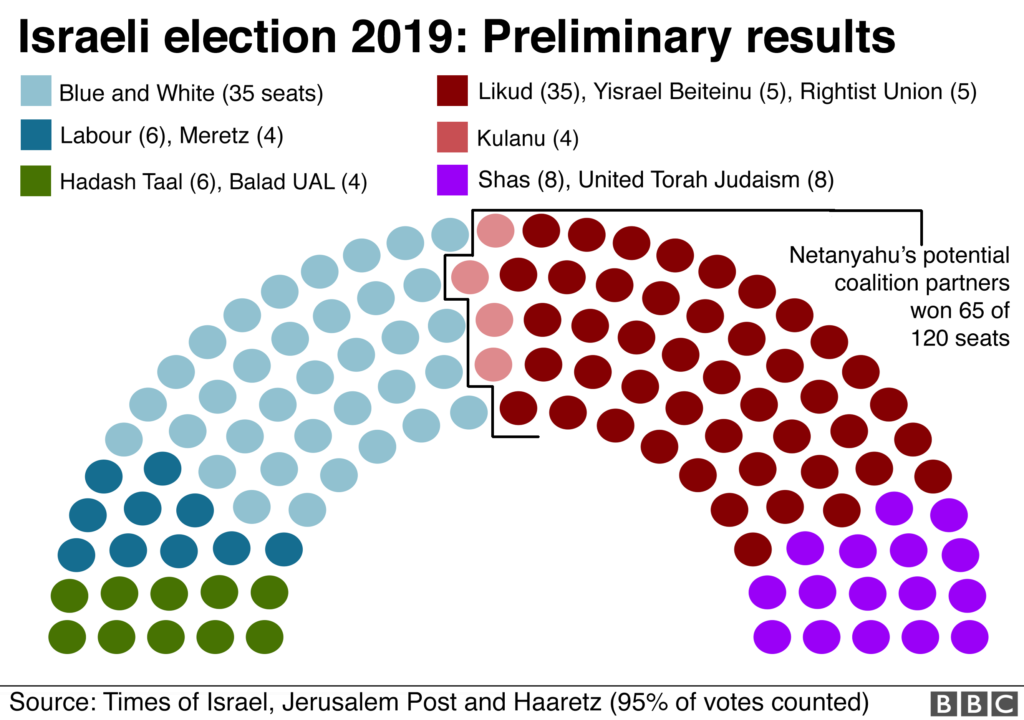The 2019 Israeli elections were held on April 9, and Benjamin “Bibi” Netanyahu seems poised to win a narrow victory. Confused? Surprised? Wondering what exactly happened? We got you.
How do Israeli elections even work?
Basically, as I wrote in JTA earlier this year, the Israeli government operates under a proportional representation system. There are 120 seats in the parliament (called the Knesset), and to get a seat, a party needs to win (at minimum) 3.25% of the vote. If a party wins 61 seats, they control the government. No party has ever won the necessary 61 seats, which means the party with the biggest chunk (and the best chance at forming a coalition) is invited by the president to form a governing coalition.
Okay, so who won the biggest chunk of seats in this election?
Funny thing is that it seems to be a tie.
As JTA reported, the two front runners, Netanyahu’s Likud party and Benny Gantz’s Blue and White party are tied with around 1 million votes apiece, giving each 35 seats. (They also each claimed victory initially.)
If it’s a tie, then who actually wins?!
Since it’s all about coalitions, the coalitions of right-wing parties are larger than the coalition of center and left-wing parties; the right-wing parties are around 65 seats, and center-left around 55 seats. So, Gantz likely (almost definitely) wouldn’t be able to form a coalition to meet the 61 seat threshold.
“The right-wing bloc, led by Likud, won a decisive victory,” Netanyahu tweeted Tuesday night.
גוש הימין בהובלת הליכוד ניצח ניצחון מובהק. אני מודה לאזרחי ישראל על האמון. אתחיל בהרכבת ממשלה ימנית עם שותפינו הטבעיים כבר הלילה
— Benjamin Netanyahu – בנימין נתניהו (@netanyahu) April 9, 2019
Can you help me visualize this?
Obvi!
Here’s a graphic from BBC I found super helpful:
What does it all mean for Israel?
Here are 9 key takeaways from the elections.
Netanyahu will likely become the country’s longest serving Prime Minister; with this election, he’s now in his fifth term. (He also served as PM in the late 90s.) It also means we’ll see if he follows through on campaign promises, like annexing settlements in the West Bank. Anyhoo, if Netanyahu is invited to form the next government (which will most likely happen), he will then have 42 days to do so.




